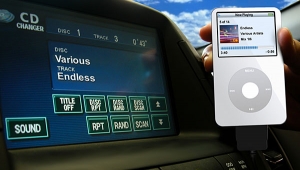| Columns Retired Columns & Blogs |
I could have checked "all of the above," but it's still too soon to say which is the proper road to follow. The way music distribution is evolving, it may NEVER have a hard, fast set of "rules" to follow -- and won't the lawyers just LOVE THAT !! As soon as any parameter is established, you can bet your ass someone out there will be upsetting the apple cart. That's just human nature putting technology in its place. Hey, everybody -- let's get used to this already !


























